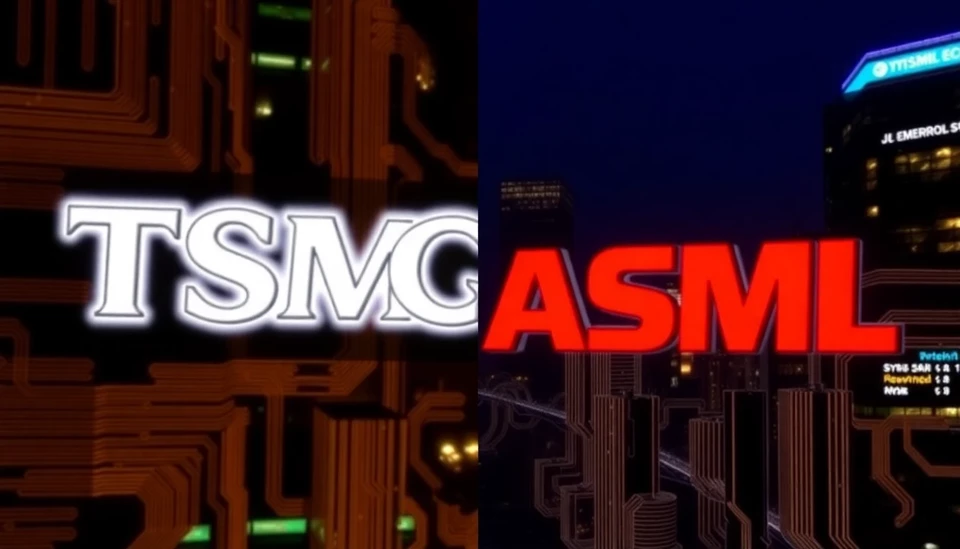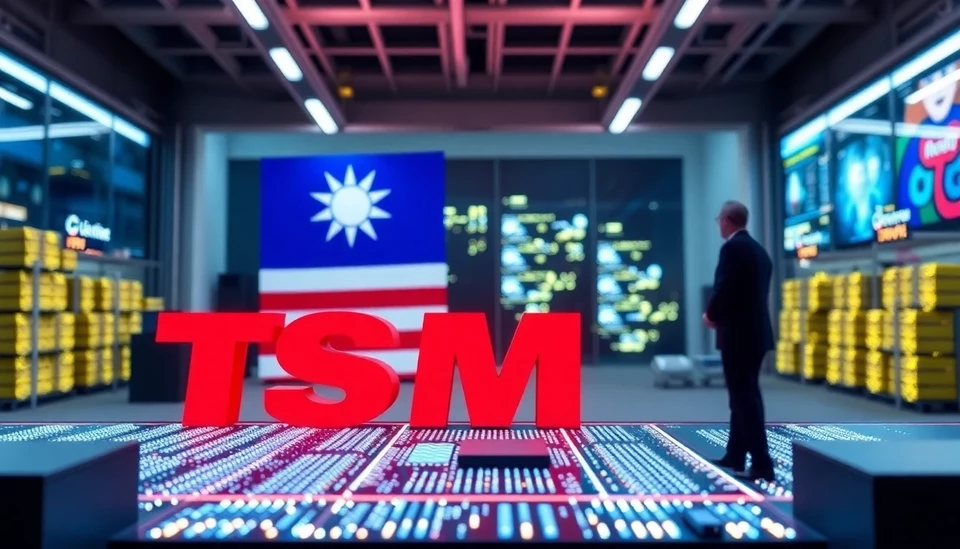
As the technology sector navigates a turbulent landscape marked by tariffs and a slowdown in artificial intelligence investments, two giants in the semiconductor industry are gearing up to share their forecasts. Taiwan Semiconductor Manufacturing Company (TSMC) and ASML Holding, a leading supplier of photolithography equipment, are set to disclose their outlooks in the coming days. Analysts and investors alike are keenly awaiting these updates, as they offer crucial insights into the ongoing challenges facing this critical industry.
TSMC, renowned for being the world’s largest contract chipmaker, is under pressure from multiple fronts. The U.S.-China trade tensions have resulted in increased tariffs on various goods, impacting its cost structures and operational efficiencies. Additionally, a pronounced pullback in AI-related chip demand has raised concerns about its revenue projections. The company’s executives are expected to address how these factors could shape their performance amid an evolving global landscape.
On the other hand, ASML, which specializes in the production of advanced lithography machines essential for making cutting-edge semiconductors, is also grappling with the ramifications of these geopolitical shifts. Market analysts predict that ASML may unveil a cautious outlook, reflecting both the decline in semiconductor demand and the increased regulatory scrutiny it faces. The firm’s insights into supply chain disruptions and technological advancements will be particularly telling as they navigate these challenging times.
The forthcoming earnings reports from TSMC and ASML come at a moment when the overall semiconductor sector is experiencing a downturn, incentivized by a cycle of overproduction and decreasing consumer demand. Experts believe that the outcomes of these updates may influence the broader stock market and impact related sectors, including technology and manufacturing. Investors will be particularly attuned to any indications of future recovery or continued struggle within the industry.
As the industry faces these challenges, both companies may highlight their strategies for adapting to the current environment— whether through innovation, diversifying revenue streams, or investing in new technologies. Understanding how these firms plan to tackle the intricacies of tariffs and slumped spending in AI will be essential not only for stakeholder interests but also for the future health of the tech sector.
In the backdrop of these developments, TSMC and ASML's upcoming outlooks serve as a bellwether for the semiconductor industry's direction, critical to many global supply chains. The reactions from investors and analysts post-announcement will likely provide a clearer picture of market sentiment and the sector’s resilience against economic headwinds.
#TSMC #ASML #Semiconductors #TechOutlook #EconomicImpact #Tariffs #ArtificialIntelligence #MarketTrends
Author: Victoria Adams

